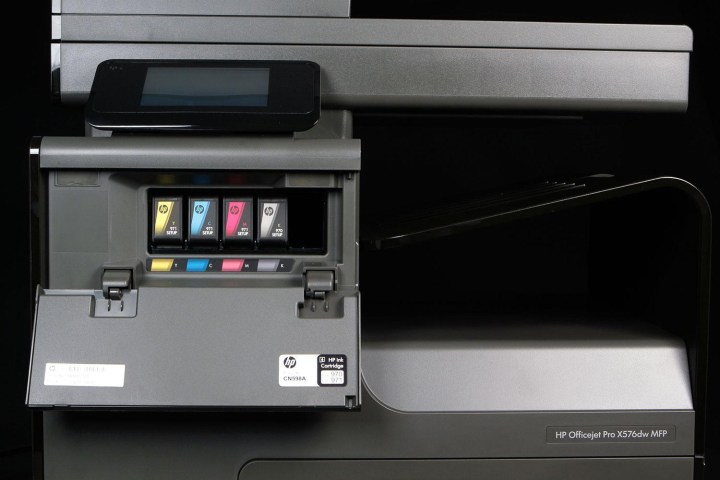
“We should have done a better job of communicating about the authentication procedure to customers, and we apologize,” said HP chief operating officer Jon Flaxman. “Although only a small number of customers have been affected, one customer who has a poor experience is one too many.”
In our original report, HP updated the firmware of numerous OfficeJet Pro and OfficeJet Pro X printers to reject ink cartridges manufactured outside the company, according to one third-party supplier. These printers will only communicate with cartridges packed with HP’s in-house security chips, preventing customers from installing off-brand, third-party ink cartridges, like those supplied by Dutch printer ink vendor 123inkt.
“Research by 123inkt technicians indicated a large scale problem regarding the functioning of 123inkt private label cartridges in various HP printers,” the company said recently. “Subsequently 123inkt.nl has e-mailed customers informing them about the possible inadequate functioning of their HP printer. To get a better understanding of the scale of the problem, 123inkt.nl asked its customers to check whether the printer still functioned. Within one day more than 1,000 consumers reported the problem.”
After determining that firmware was blocking the third-party cartridges, the company contacted HP’s branch in the Netherlands for clarification. At the time of the query, the company was not aware of a problem but later confirmed that new firmware was unintentionally blocking third-party labels. 123inkt discovered that HP distributed new firmware to these printers in March, but the sudden halt of third-party cartridge support did not happen until September 13 — indicating a possible timed execution.
123inkt is not taking the banning lightly. The company is already working with its printer chip manufacturer to create a version that will work on the affected printers. The company also determined that the affected printers will continue to accept third-party cartridges if they are not updated to the latest firmware. The firmware 123inkt used to test its off-brand cartridges dated back to 2014.
In a response to reports of HP blocking third-party cartridges on its printers, the company originally said that it began implementing updates to the firmware related to its security chip to maintain a secure connection between the printer and the cartridge. These changes affected OfficeJet printers as well as the previously mentioned OfficeJet Pro and OfficeJet Pro X models.
However, Flaxman clarified in his post on Wednesday that the current firmware in place blocks ink cartridges that feature cloned, untested security chips. This block is to not only protect HP’s technology, but to enhance the security of the customer and help fight against counterfeited products. But obviously the plan backfired, causing a wave of negativity across the consumer sea. Because of this, new firmware will be released in a few weeks.
“We will continue to use security features to protect the quality of our customer experience, maintain the integrity of our printing systems, and protect our IP including authentication methods that may prevent some third-party supplies from working,” he said.
Updated on 09-29-2016 by Kevin Parrish: Added information about HP’s new firmware, and comments from COO John Flaxman.


